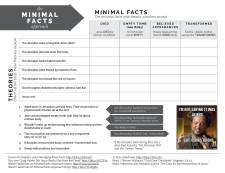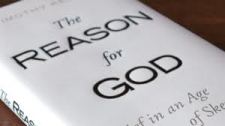Encourage:

-
Recent Posts
-
Past President of The Christian Apologetics Alliance

Apologetics Daily

my goodreads profile

Categories
- Apologetics
- Apologetics Toolbox
- Epistemology
- Ethics & Metaethics
- God Particle
- Groothuis' 'Christian Apologetics'
- Keller's Reason for God
- Ontological Argument
- Predestination
- Richard Dawkins
- Sam Harris
- Stephen Law's evil god argument
- Testimonies
- Tim McGrew
- Undesigned Coincidences
- William Lane Craig
- Youth Apologetics
- Bible Narrative Project
- Carnival
- Examiner.com Articles
- Freelancing Tips and Tricks
- Inventions
- Memories
- Neighboring
- News
- Poetry and Fiction
- Random
- Reviews and Interviews
- Apologetics
Archives
Meta
Category Archives: Gettier Problem
Ethics & Morality
Below is a collection of my thinking on the grounding and justification of moral truth. I am warming up for something. Divine Essentialism God wills it (right) because He is good — essentialism. 1/4/08 (Not mine. Precursor.) The Sword and the … Continue reading
Posted in Apologetics, Divine Essentialism, Euthyphro Dilemma, Gettier Problem, Golden Rule, Groothuis' 'Christian Apologetics', Is-Ought Fallacy, Justified True Belief, Keller's Reason for God, Moral Argument, Natural Law and Divine Command, Richard Dawkins, Sam Harris, William Lane Craig
3 Comments
The Humean-Platonic tripartite (Ought-Is-Belief) theory of (moral) knowledge
The Humean-Platonic tripartite (Ought-Is-Belief) theory of (moral) knowledge It is possible to blend Hume’s is-ought distinction (1) in Ethics with Plato’s justified-true-belief theory of knowledge. Simply put, whatever sort of beliefs one is talking about, including moral beliefs, they must be … Continue reading
Groothuis’ "Christian Apologetics" ch.6: Truth Defined and Defended
The apologetics study group LOVES this quote from Groothuis’ Christian Apologetics: “We may be entitled to our own opinions, but we are not entitled to our own facts.” p. 124 It’s actually a variant of a quote commonly attributed to Daniel Patrick … Continue reading
Is-ought discussion with WLC
I had a discussion with Dr. Craig in a note I posted on Facebook, but I am deleting Facebook Sunday and the discussion was never resolved, so I am moving it to here. Hopefully he can reply here or in … Continue reading
Answering Jerry Coyne and Jason Thibodeau on the Euthyphro Dilemma
Maryann, Matt, Tom and Jerry (missing: Jason) I’m writing this blog post to get in on the most recent Euthyphro Dilemma dilemma between atheist biologist Jerry Coyne and my fellow Christian Apologetics bloggers Matt Flannagan of MandM and Tom Gilson … Continue reading
Philosophers’ Carnival call for submissions
I’ll be hosting the next Philosophers’ Carnival on June 27 (submit by June 25). Email submission if need be. . Some topics I’d like to see in the submissions: How can an objectively true moral ‘ought’ correspond to the ‘is’ of reality? … Continue reading
Questions regarding first chapter of Craig’s "Reasonable Faith"
I want to start by saying I’m a huge fan of William Lane Craig and recently met him at a fairly local Reasonable Faith conference. I had almost finished reading On Guard when the conference began and have since completed … Continue reading
God (is) the Golden Rule (ought) without offending Hume
Would very much appreciate some feedback on this. I have tried to put all of it in my own words without referring to influential sources. Clearly some of it needs more reasons (like the GR’s presence in every major culture/religion, how … Continue reading
Hume’s is-ought, Plato’s true-justified, Euthyphro’s dilemma and Gettier’s problem
Hume‘s is-ought (fact-value) distinction is the same as Plato‘s true-justified distinction. When is/true/fact and ought/justified/value are not kept distinct, the Euthyphro dilemma as applied to epistemology ensues: Are we justified in believing (ought we believe) merely because our belief is true (can truth justify … Continue reading
Answering Gettier
[ work in progress ] [ completed 1/15/11 ] Plato’s justified-true-belief definition of knowledge, maintained by critical realists, besides requiring that a belief be justified by evidence and true by correspondence, says 1) whether or not a belief is true … Continue reading








